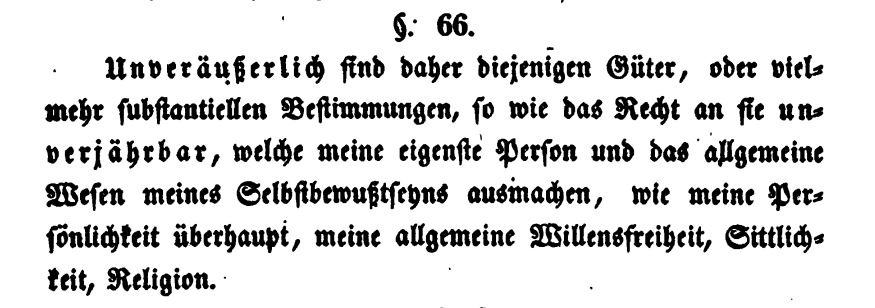In Hegel’s “Encyclopedia of Philosophical Sciences,” the chapter on Abstract Right delves into the foundational aspects of legal and moral philosophy. Hegel posits that property is an essential expression of the self, where individuals assert their identity and personality. This assertion of “this is mine” is a claim that must be recognized by others, thus property becomes an embodiment of personality.
Hegel further explores the notion of personhood and will, linking the concept of property to the recognition of individuals as persons who possess a will. This will is free and expressed through the ownership and exchange of property, which is fundamental to being recognized as a person with rights.
Contracts and exchange are central to Hegel’s understanding of social interactions. Contracts are agreements that establish ownership and create norms of mutual respect for individual rights and obligations. The economic life, governed by the free exchange of commodities, is based on these institutionalized notions of the individual as a right-bearing person.
Abstract Right, according to Hegel, is the system of mutual recognition among individuals who are considered as abstract, universal subjects. This system forms the basis of morality, which is the subjective side of social obligations institutionalized in contracts and the economic market. Morality is an abstract ideal, a vision of good based on mutual recognition of rights, and people are morally motivated through a sense of duty to defend these universal rights.
Hegel’s exploration of Abstract Right lays the groundwork for understanding how modern notions of individuality and rights are intertwined with social, economic, and political institutions. He addresses the potential alienation of individuals from the collective and the stresses that arise from modern conceptions of individual rights.
He critiques the “natural rights” present in social contract theories, suggesting that rights emerge from social and economic interactions rather than being inherent. Hegel’s analysis provides a complex understanding of the nature of rights, property, and personhood, and how these concepts are interwoven with the fabric of modern society, emphasizing the importance of mutual recognition and the institutionalization of rights in the development of moral obligations and the functioning of economic systems.


